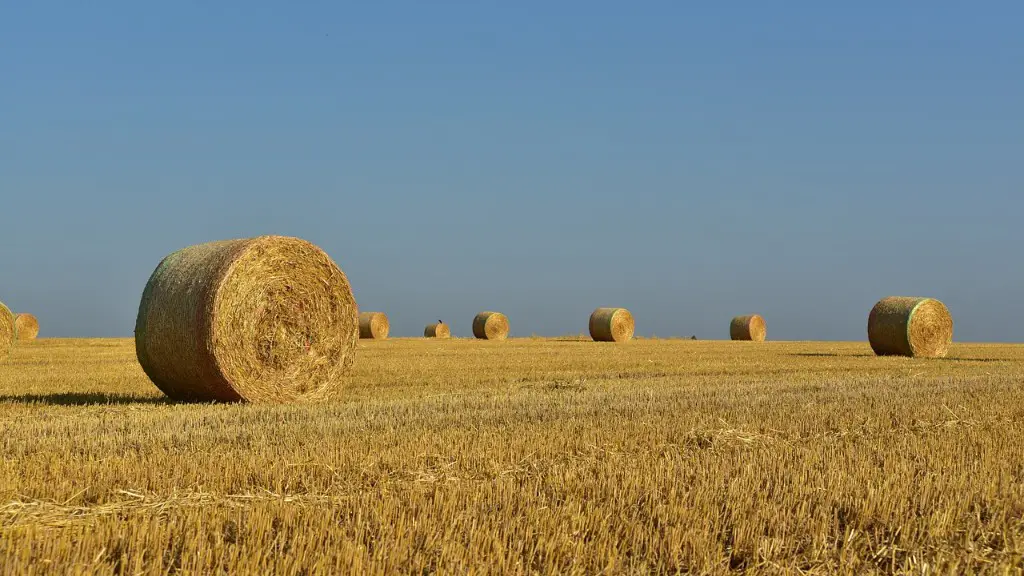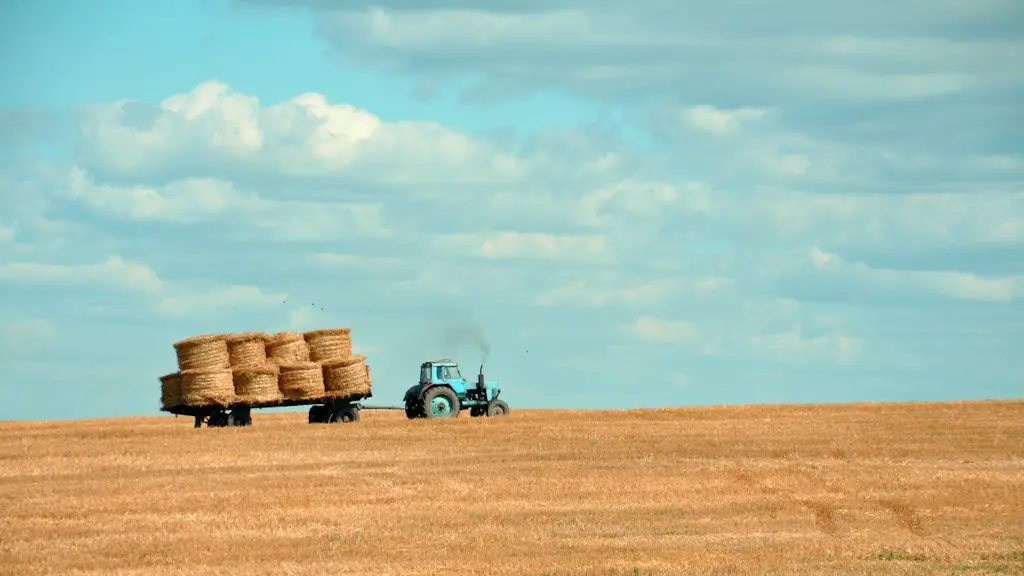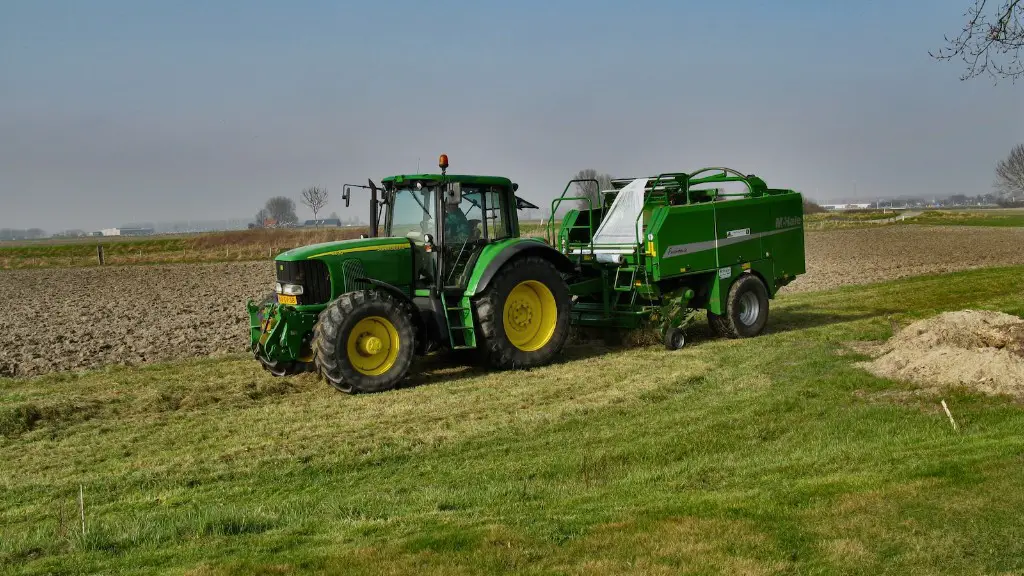Agricultural diplomas are popular courses among students and can be beneficial for those looking to enter the agricultural sector. But with a wide range of courses available, it can be hard to know which course is best in agriculture diploma. With the right guidance, however, an individual can choose the course that best suits their goals and interests.
Firstly, it’s important to consider the skills and knowledge that are needed for a particular role in the agricultural sector. Understanding the expectations of the role is essential as this will help to narrow down the range of courses available. Doing research into what a particular role requires or attending an agricultural careers seminar is a great way to gain a better understanding of the necessary skills.
Secondly, an individual should also look at the range of courses available and compare them in terms of their content and assessment methods. Taking into consideration the type of assessment, such as exams or coursework, is important as it will determine which method of learning is best suited to their own style.
Thirdly, admissions criteria, cost and length of course should be taken into consideration when selecting a course. Some courses may have stringent entry requirements, which, if not met, may prevent an individual from gaining a place on the course. Knowing the cost can help to budget for the course, as well as calculating the time taken for completion.
Fourthly, having an understanding of the potential career pathways after completing the course is valuable. It’s beneficial to research what employers are looking for in terms of qualifications and experience. Doing this can help to identify further areas of study that may be beneficial.
Finally, seeking advice from a professional in the sector can help to make an informed decision on which course is best in agricultural diploma. Getting advice from knowledgeable individuals with experience in the field is invaluable.
Industry Ready Courses
When considering which course is best in agricultural diploma, it’s important to look at whether the courses are industry ready. This means that employers are highly likely to hire graduates from these particular courses as they have an in-depth knowledge of the subject. When researching courses, ensure that the syllabus is up-to-date and covers recent developments in the sector. This will ensure that the studies are of a high standard.
Acknowledging the industry’s standards and what employers expect from graduates is essential for prospective students. This includes developing the necessary technical skills that employers are looking for, such as data analysis, strategic planning or problem solving.
It can be advantageous to gain an understanding of the types of roles graduates may take on after completing the course. This could range from working in farms or estate management to operating agricultural machinery. Knowing the type of roles available to graduates can help to determine which courses are best in agricultural diploma.
Identifying any potential placements or internships available after the course is another great way to understand what type of roles are available. Often these are provided through university industrial contacts which can be beneficial to get a foot in the door.
Ongoing Support
It’s important to ensure that the course offered a range of support systems for students. This includes pastoral care, library services, study guidance and career advice. Knowing that there is ongoing support throughout the duration of the course can help to alleviate stress and improve study results.
Access to online resources can also have a positive impact on learning. Knowing that there are online services available for access to course materials and calculators can be beneficial for future studies.
Look for universities with a strong commitment to teaching excellence, as this will ensure that students are receiving the highest quality educational experience. Universities should also have specialised facilities, access to experienced staff and industry leaders and financial support available.
In addition to the educational experience, it’s important to consider the overall university experience. Choosing a university that offers a variety of activities, such as sports and social events, can help to improve mental and physical wellbeing.
Recognition and Credibility
One of the key factors to consider when choosing which course is best in agricultural diploma is the level of recognition and credibility it provides. It’s beneficial to ensure that the course offered by the chosen university is accredited by the appropriate organisations.
Ensuring that the university produces well-known graduates in the field is also important as it can help to secure better employment opportunities in the long run. Reading about successful alumni is a great way for prospective students to get an insight into the quality of the university.
It’s also beneficial to read up on the university or college’s reputation and performance ratings. Knowing that the institution is highly regarded in the sector can help to make an informed decision about the chosen course.
Comparing courses offered by different institutions is also important. This can be done through looking at course materials, such as textbooks, in order to get an understanding of the content covered and depth of knowledge that the course provides.
Additional Factors
In addition to the points listed above, other factors should be taken into consideration when selecting which course is best in agricultural diploma. These include looking into the availability of funding and grants, and the potential for career development after completion of the course.
It’s also important to understand the teaching methods and style used by the university or college. Knowing the type of learning and teaching environment can help to determine whether the course is suitable for an individual’s particular style.
Studying a postgraduate course can be beneficial as it will provide an opportunity to further develop skills and knowledge. With an increased range of advanced topics, such as pest management, students can gain a better understanding into the workings of the industry.
Partaking in voluntary work in the agricultural sector can also be beneficial. This can provide an insight into the potential career opportunities and employers in the industry.
Gaining advice from professionals can help to make an informed decision about which course is best in agricultural diploma. Doing research into different courses and examining entry requirements can help to narrow down the list and make a well-informed choice.





